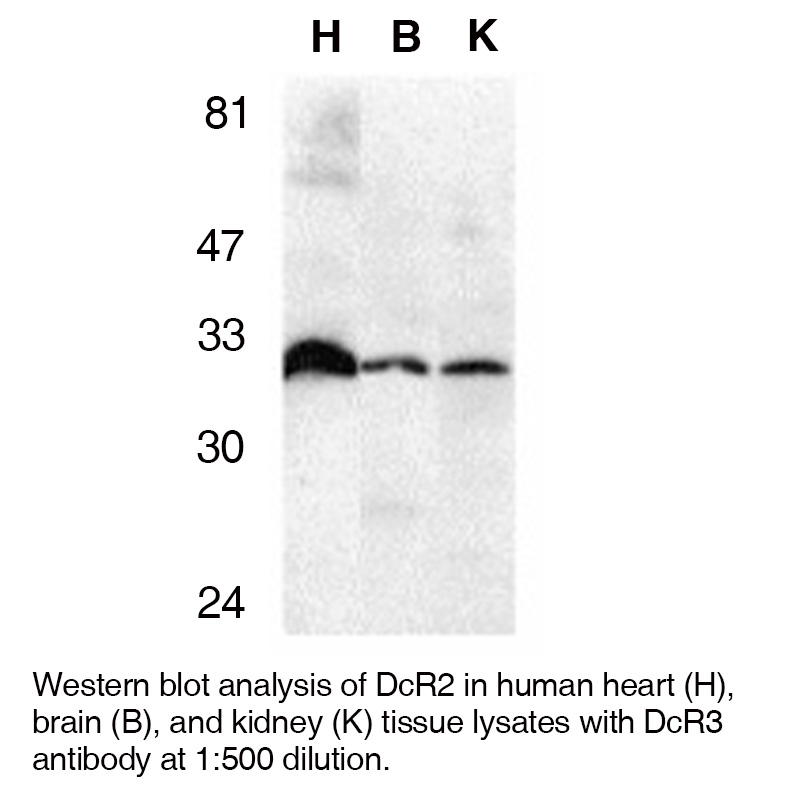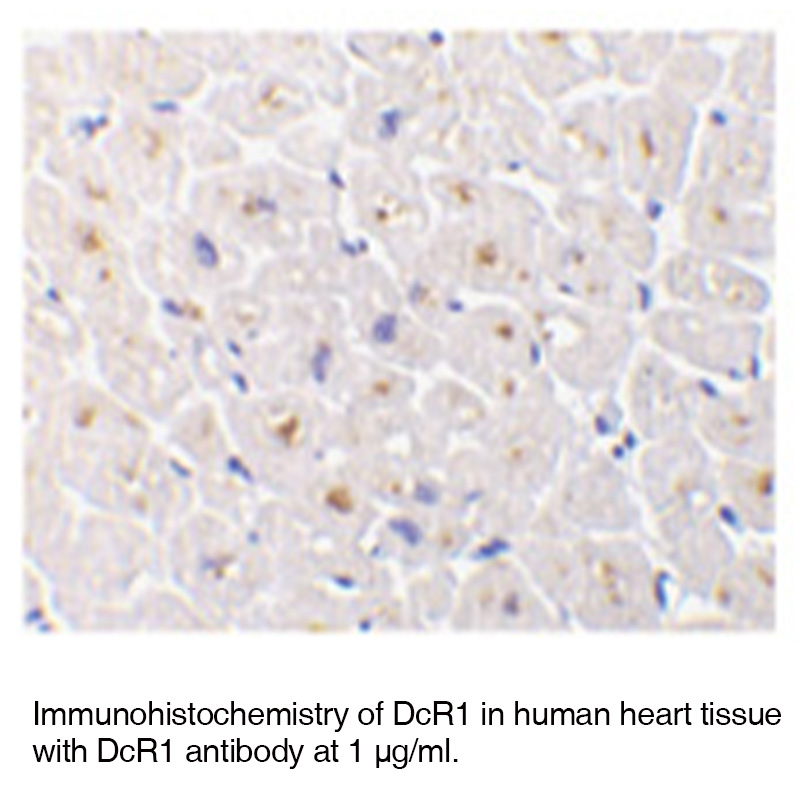Anti-Human DcR3 (NT)
Data
- -
- -
Antibody DetailsProduct DetailsReactive Species Human Host Species Rabbit Immunogen PN:D267 Product Concentration 0.5 mg/ml Formulation This polyclonal antibody is formulated in phosphate buffered saline (PBS) pH 7.4 containing 0.02% sodium azide as a preservative. Storage and Handling This polyclonal antibody is stable for at least one week when stored at 2-8°C. For long term storage, aliquot in working volumes without diluting and store at –20°C in a manual defrost freezer. Avoid Repeated Freeze Thaw Cycles. Country of Origin USA Shipping Next Day Ambient RRIDAB_2829909 Each investigator should determine their own optimal working dilution for specific applications. See directions on lot specific datasheets, as information may periodically change. DescriptionDescriptionSpecificity Rabbit Anti-Human DcR3 recognizes an epitope near the N-terminus of mouse, rat and human DcR3. This polyclonal antibody was purified using affinity chromatography. Background Apoptosis is induced by certain cytokines including TNF and Fas ligand in the TNF family through their death domain containing receptors. Several novel members in the TNFR family including DR3, DR4, DR5, and DR6 were recently discovered and function as cell death receptors. Two decoy receptors, DcR1 and DcR2, were recently identified to compete with DR4 and DR5 for their ligand TRAIL binding. A novel decoy receptor was more recently discovered and designated DcR3 and TR6, respectively.1,2 Unlike DcR1 and DcR2, DcR3 is a soluble rather than a membrane associated molecule. DcR3 binds to FasL and LIGHT and inhibits FasL and LIGHT induced apoptosis.1,2 DcR3 transcript is expressed in a number of lung and colon carcinomas and in some normal tissues. PubMed References & Citations1. Pitti, RM. et al. (1998) Nature 396:699-703 2. Yu, KY. et al. (1999) J Biol Chem274:13733-6 Technical ProtocolsCertificate of Analysis |




